Contact Our Firm
The use of the Internet or this form for communication with the firm or any individual member of the firm does not establish an attorney-client relationship. Confidential or time-sensitive information should not be sent through this form.
I have read and understand the Disclaimer and Privacy Policy.

Recent Blog Posts
When Can Business Litigation Address Tortious Interference?
 There are multiple reasons why a company may pursue business litigation against another company or person. In many cases, litigation will seek to address losses or other damages caused to a business by another party’s actions. Tortious interference is one issue that may arise during business litigation, and it addresses cases where another party interfered with a business’s relationships and caused the business to suffer losses. An attorney with an understanding of business law can ensure that a company will be able to address this issue properly when pursuing litigation or resolving business disputes.
There are multiple reasons why a company may pursue business litigation against another company or person. In many cases, litigation will seek to address losses or other damages caused to a business by another party’s actions. Tortious interference is one issue that may arise during business litigation, and it addresses cases where another party interfered with a business’s relationships and caused the business to suffer losses. An attorney with an understanding of business law can ensure that a company will be able to address this issue properly when pursuing litigation or resolving business disputes.
What Is Tortious Interference?
Businesses may engage in a variety of activities as they work to build relationships with customers, engage in contractual agreements, and build positive reputation and goodwill in the marketplace. While some activities may be considered standard forms of competition, others may be seen as intentional attempts to cause harm to someone else.
Can Business Litigation Be Used to Recover Fraud-Related Losses?
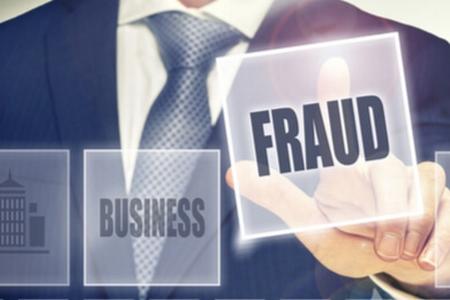 There are multiple types of fraudulent activity that can affect a business. Fraud may be committed by an officer or employee of a company, another company that has misrepresented information during a transaction, or any other party that engages in theft of a company’s money or assets. These actions can result in significant losses for a company. While a person who commits fraud may face criminal charges, a company may also be able to pursue civil litigation to address the damages resulting from fraud.
There are multiple types of fraudulent activity that can affect a business. Fraud may be committed by an officer or employee of a company, another company that has misrepresented information during a transaction, or any other party that engages in theft of a company’s money or assets. These actions can result in significant losses for a company. While a person who commits fraud may face criminal charges, a company may also be able to pursue civil litigation to address the damages resulting from fraud.
Forms of Fraud That Can Affect a Business
Some common types of fraud that may be addressed through business litigation include:
-
Embezzlement - An employee, officer, or partner of a company may steal or misappropriate money or other assets belonging to the company. This type of theft may involve physically taking cash or property, redirecting a business’s funds into a personal account, or deceptive practices by one partner that deprive other partners of their rightful share of a company’s earnings or profits.
Can a Company Pursue Litigation Based on Theft of Trade Secrets?
 When operating a business, owners and partners will want to take whatever steps are necessary to protect their financial interests. In many cases, this means maintaining certain types of trade secrets that will allow them to provide value to their customers and remain competitive in the marketplace. Unfortunately, there are many situations where these trade secrets may be stolen or misappropriated and used by a company’s competitors to gain an unfair advantage. In these cases, a company may be able to pursue litigation against the parties who have stolen or trafficked in trade secrets and engaged in anti-competitive practices, while also ensuring that this information can remain confidential.
When operating a business, owners and partners will want to take whatever steps are necessary to protect their financial interests. In many cases, this means maintaining certain types of trade secrets that will allow them to provide value to their customers and remain competitive in the marketplace. Unfortunately, there are many situations where these trade secrets may be stolen or misappropriated and used by a company’s competitors to gain an unfair advantage. In these cases, a company may be able to pursue litigation against the parties who have stolen or trafficked in trade secrets and engaged in anti-competitive practices, while also ensuring that this information can remain confidential.
Defense of Trade Secrets in Florida
When Is a Non-Compete Agreement Enforceable in Florida?
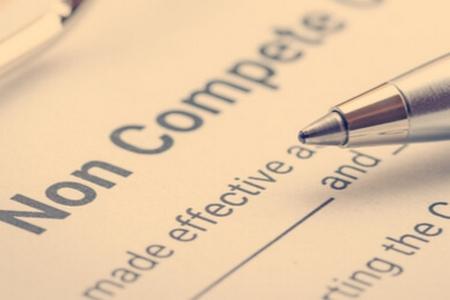 Operating a business will involve interactions with a variety of other parties, including customers, vendors, other companies, and employees. There are many situations where disputes involving these or other parties may arise. Business litigation may be necessary to resolve these issues and address losses that a company may have experienced because of other parties’ actions. If disputes related to non-compete agreements become an issue, business owners will need to understand how the law applies to these situations and how they can enforce the terms of these agreements.
Operating a business will involve interactions with a variety of other parties, including customers, vendors, other companies, and employees. There are many situations where disputes involving these or other parties may arise. Business litigation may be necessary to resolve these issues and address losses that a company may have experienced because of other parties’ actions. If disputes related to non-compete agreements become an issue, business owners will need to understand how the law applies to these situations and how they can enforce the terms of these agreements.
Enforcing Restrictive Covenants in Florida
Non-compete agreements are often used in employment contracts or severance agreements, and they are meant to ensure that a former employee will not directly compete with their employer and use their knowledge of a company’s operations or customers in a way that negatively affects the company’s business interests. They may also be used in other situations, such as a joint venture agreement between two companies. Non-compete agreements are known as restrictive covenants because they restrict a person from working for a competitor or engaging in certain types of business activities.
Can I Sue My Florida Business Partner for a Breach of Contract?
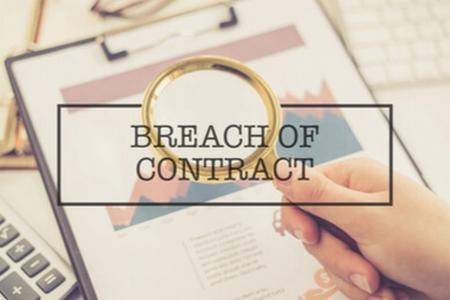 Embarking on a business partnership can leave one feeling optimistic and excited about the future. Unfortunately, not all business relationships live up to this initial hopefulness. If your partner relationship has taken a negative turn, you may have questions about your legal rights. You may wonder, “Can I sue my business partner?”
Embarking on a business partnership can leave one feeling optimistic and excited about the future. Unfortunately, not all business relationships live up to this initial hopefulness. If your partner relationship has taken a negative turn, you may have questions about your legal rights. You may wonder, “Can I sue my business partner?”
Breach of Partnership Agreement
When a partner damages the business by breaching the partnership agreement, the remaining partners may have cause for legal action against the breaching party. Breach of contract involving a partnership agreement occurs when:
-
The partner has violated one or more terms of the contract
-
The business or remaining partner(s) have suffered financial injury due to the breach
What Is Breach of Fiduciary Duty in Partner or Shareholder Disputes?
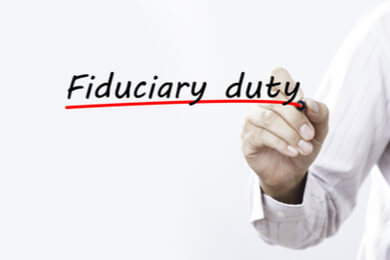 There are multiple different types of disputes that may be addressed through business litigation. When disputes arise between business partners or the shareholders of a corporation, these cases will often involve claims that a party has committed a breach of fiduciary duty. Those who are involved in these types of disputes will need to understand their rights and obligations. By working with a skilled business law attorney, a business partner or shareholder can make sure they are taking the correct steps to resolve these issues effectively.
There are multiple different types of disputes that may be addressed through business litigation. When disputes arise between business partners or the shareholders of a corporation, these cases will often involve claims that a party has committed a breach of fiduciary duty. Those who are involved in these types of disputes will need to understand their rights and obligations. By working with a skilled business law attorney, a business partner or shareholder can make sure they are taking the correct steps to resolve these issues effectively.
Understanding Breach of Fiduciary Duty
Certain parties have an obligation to act in a way that will benefit someone else. This is known as fiduciary duty, and the party who has this duty is known as a fiduciary, while the party to whom the duty is owed is known as a principal or beneficiary. Business partners have a fiduciary duty toward other partners, and a corporation’s majority shareholder has a fiduciary duty toward the other shareholders.
What Types of Remedies Are Available in Breach of Contract Litigation?
 Businesses often rely on contracts to protect their rights and financial interests. A legally binding contract will ensure that both parties will meet their obligations, which may include making payments by a certain date, performing certain types of services, or following restrictions such as the non-disclosure of sensitive information. If one party fails to follow the terms of a contract, this can cause problems for the other party, including financial losses or the disruption of business operations. In these cases, a business may pursue litigation to address a breach of contract, and if they can show that the other party did not meet their contractual obligations, the court may award certain types of remedies.
Businesses often rely on contracts to protect their rights and financial interests. A legally binding contract will ensure that both parties will meet their obligations, which may include making payments by a certain date, performing certain types of services, or following restrictions such as the non-disclosure of sensitive information. If one party fails to follow the terms of a contract, this can cause problems for the other party, including financial losses or the disruption of business operations. In these cases, a business may pursue litigation to address a breach of contract, and if they can show that the other party did not meet their contractual obligations, the court may award certain types of remedies.
Options for Resolving Breach of Contract Issues
Proposed Bill May Allow Student Loans to Be Discharged Through Bankruptcy
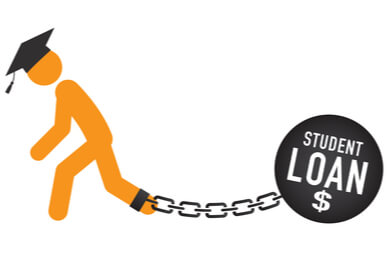 Student loans make up a significant percentage of the debt carried by people in the United States. In fact, student loan debts are second only to mortgage loans in the categories of consumer debts, and they total more than $1.7 trillion. These debts can place a significant burden on many people, and due to interest charges, collection fees, or other costs, they can last throughout a person’s entire life. Unlike many other types of debt, student loans cannot currently be discharged through bankruptcy in most cases. However, this may soon change due to a new bill that was introduced in the U.S. Senate.
Student loans make up a significant percentage of the debt carried by people in the United States. In fact, student loan debts are second only to mortgage loans in the categories of consumer debts, and they total more than $1.7 trillion. These debts can place a significant burden on many people, and due to interest charges, collection fees, or other costs, they can last throughout a person’s entire life. Unlike many other types of debt, student loans cannot currently be discharged through bankruptcy in most cases. However, this may soon change due to a new bill that was introduced in the U.S. Senate.
The FRESH START Through Bankruptcy Act of 2021
On August 3, 2021, Senator Dick Durbin (D-IL) and Senator John Cornyn (R-TX) introduced a bill that would allow debtors to discharge student loan debts through bankruptcy in certain cases. This bill would restore an option that was available to borrowers before bankruptcy laws were changed in 1998. Under this provision, federal student loan debts would become eligible to be discharged in a bankruptcy proceeding 10 years after the due date of the first loan payment.
New CFPB Rule Provides Options to Help Prevent Foreclosure
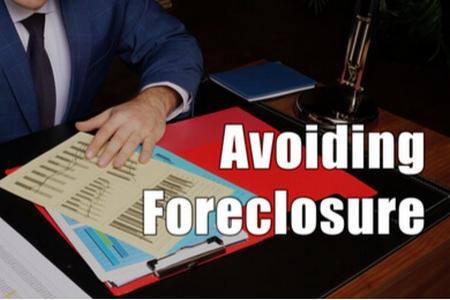 Many homeowners have suffered financial setbacks during the COVID-19 pandemic, and this may have caused them to be unable to make mortgage payments. Government programs have helped protect people who have been affected by COVID-19, including allowing them to receive forbearance on mortgage payments. A moratorium on foreclosures has ensured that those who have defaulted on their mortgage will not be forced out of their homes during this emergency. However, these programs and protections are coming to an end, and lenders may soon begin initiating foreclosure proceedings for those who are delinquent on mortgage payments. To address this issue, the Consumer Financial Protection Bureau (CFPB) recently implemented a temporary rule to ensure that homeowners have options for avoiding foreclosure.
Many homeowners have suffered financial setbacks during the COVID-19 pandemic, and this may have caused them to be unable to make mortgage payments. Government programs have helped protect people who have been affected by COVID-19, including allowing them to receive forbearance on mortgage payments. A moratorium on foreclosures has ensured that those who have defaulted on their mortgage will not be forced out of their homes during this emergency. However, these programs and protections are coming to an end, and lenders may soon begin initiating foreclosure proceedings for those who are delinquent on mortgage payments. To address this issue, the Consumer Financial Protection Bureau (CFPB) recently implemented a temporary rule to ensure that homeowners have options for avoiding foreclosure.
Loss Mitigation Options for Borrowers
Should I Structure My Florida Business as a PLLC?
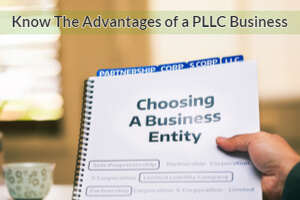 Business owners have multiple options for structuring their company. During the business formation process, the selection of a business entity can ensure that a business will be able to operate correctly while providing owners or partners with protection from liability. Establishing a business as a limited liability company (LLC) can offer many advantages, including flexibility and the ability to utilize pass-through taxation. In Florida, certain types of professionals can create a professional limited liability company (PLLC), which will provide them with many of the advantages of a standard LLC.
Business owners have multiple options for structuring their company. During the business formation process, the selection of a business entity can ensure that a business will be able to operate correctly while providing owners or partners with protection from liability. Establishing a business as a limited liability company (LLC) can offer many advantages, including flexibility and the ability to utilize pass-through taxation. In Florida, certain types of professionals can create a professional limited liability company (PLLC), which will provide them with many of the advantages of a standard LLC.
Advantages of a PLLC
Professional services providers who require professional licenses or other forms of legal certification or authorization can establish a PLLC. These providers include:
-
Doctors, surgeons, and other medical providers















